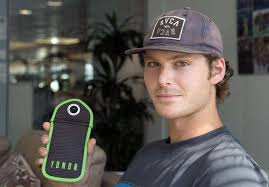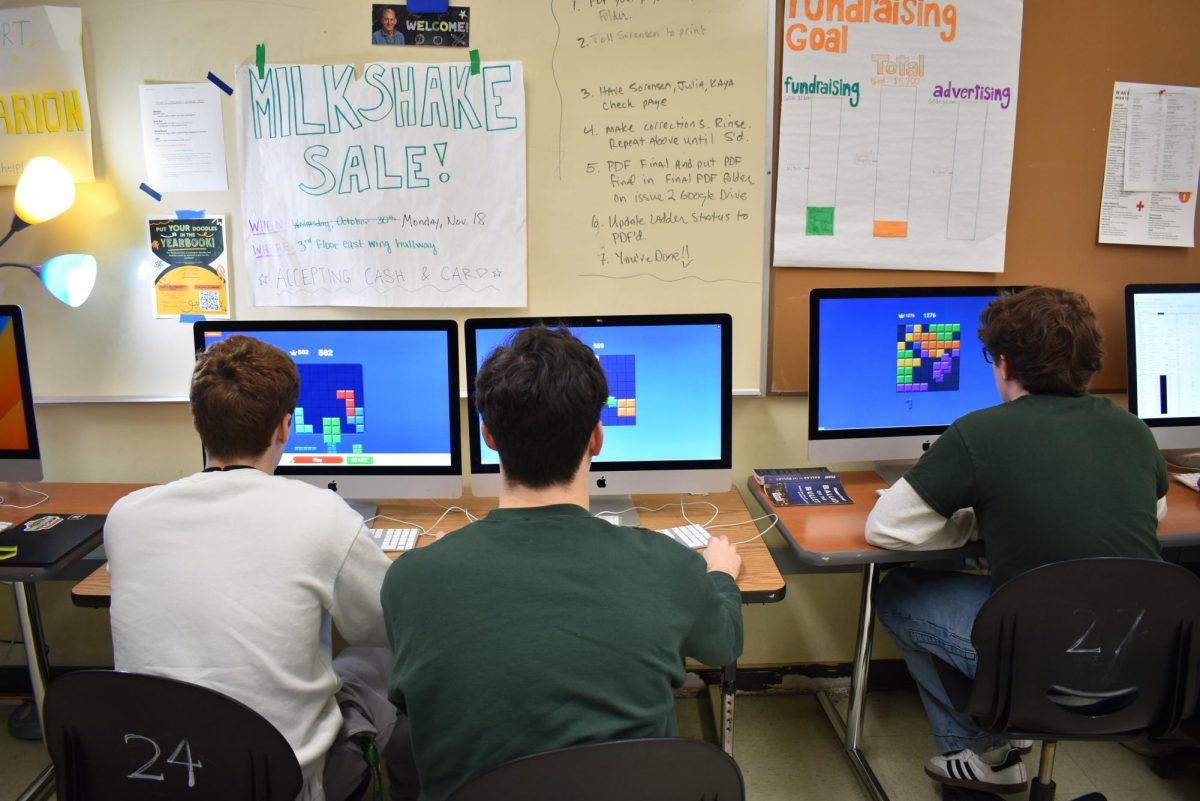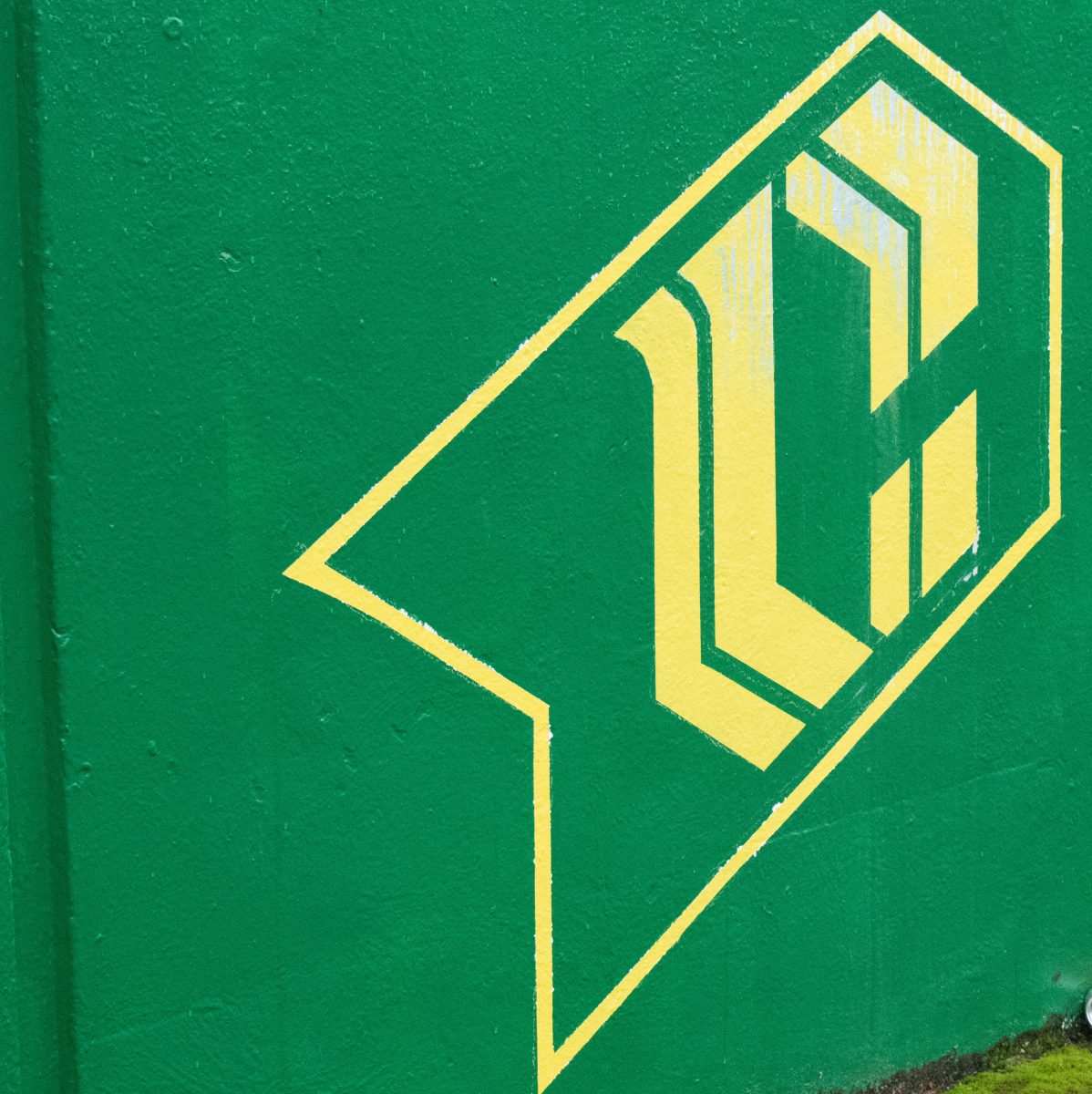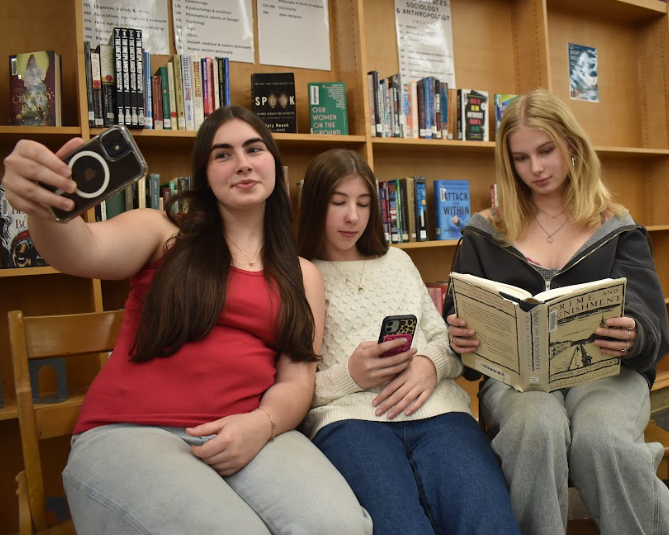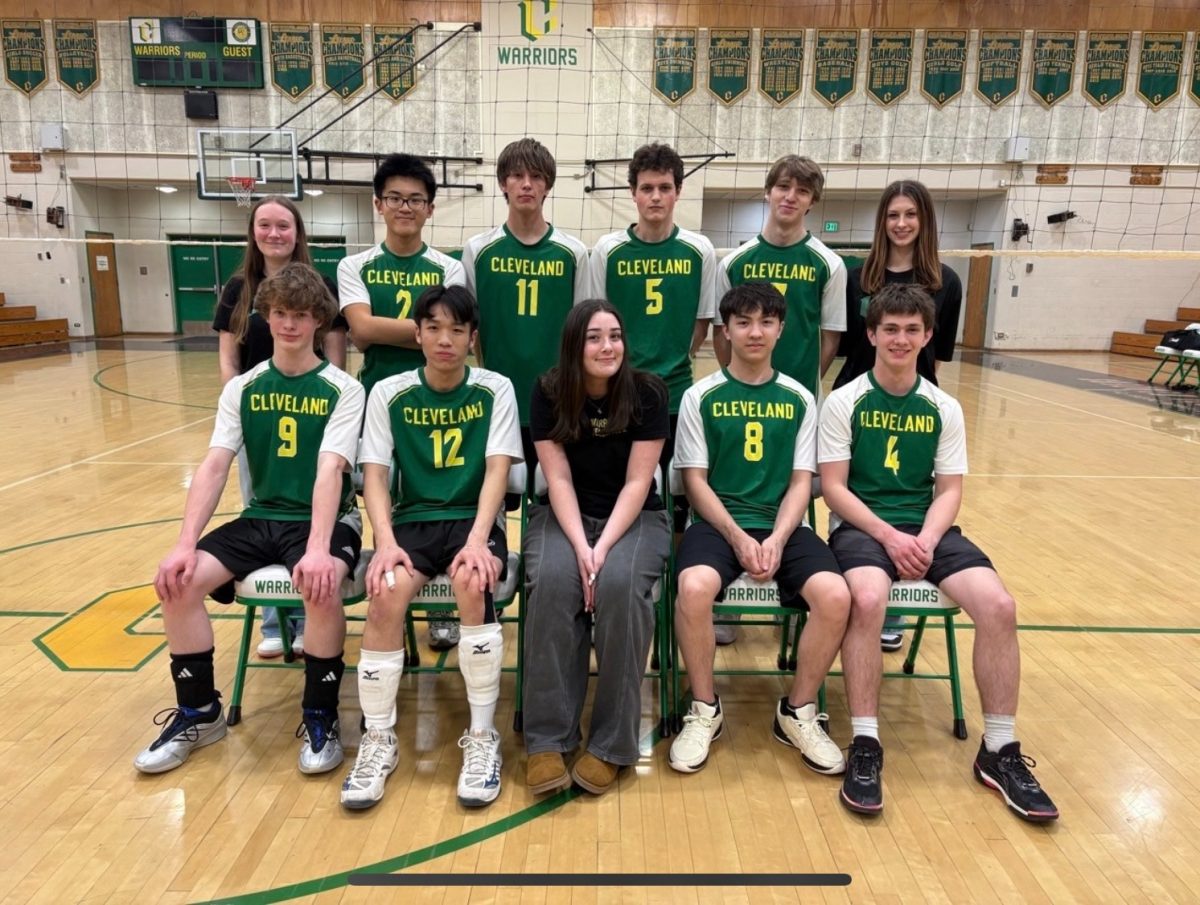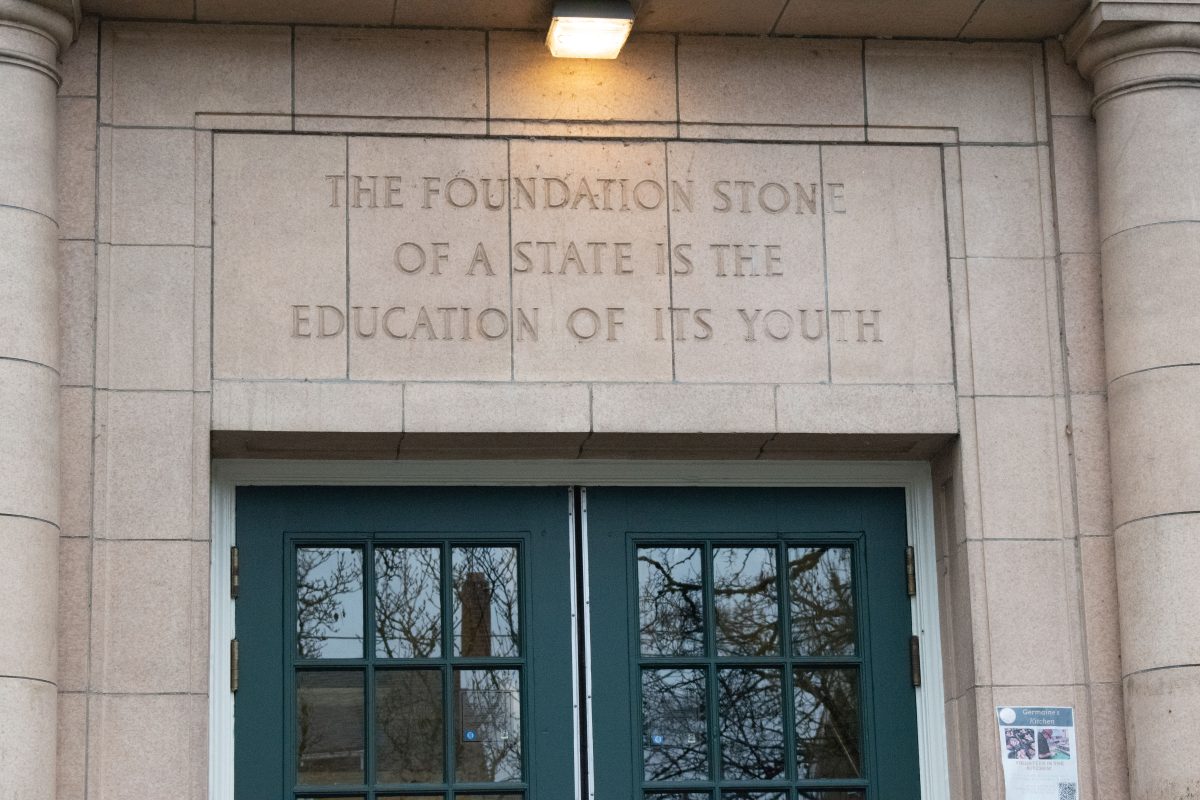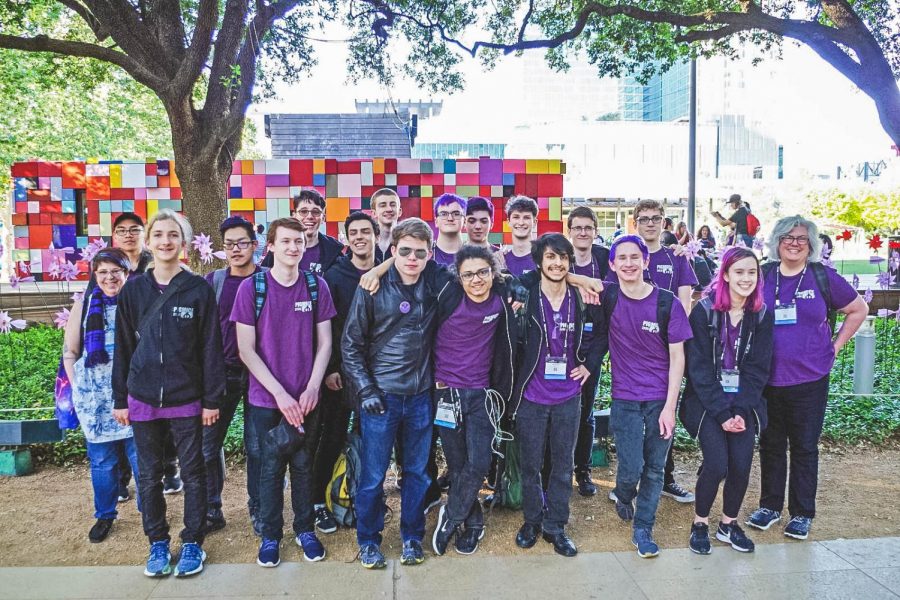Not only is Graham Dugoni the founder of one of the most newly prevalent companies in schools, but he is also a native Portlander. Dugoni attended Jesuit High School and later started Yondr, which has introduced new school and district-wide cell phone policies all over the world. His interview details the origins of the company, addresses ethical concerns, and further steps for the future, all of which provide insight for students feeling various ways about the new rules. I had the opportunity to ask Dugoni a few questions so we can all be better acquainted with the guy who started it all.
What drove you to start Yondr?
A: I started it for your generation. The idea was, I felt like your generation was going to be digital natives, born into a world with digital media surrounding you. I thought it was my generation’s responsibility to at least give you the opportunity to experience what life is like without those things for a little bit so that as you grow up and make your own choices, at least you got the chance to walk through the world for six to eight hours a day without your phone so that you could decide later on when and where you wanted to use technology. There are a lot of benefits of technology, but I also think that when it’s around, it has a way of pushing other things out of the way. Developing relationships, being in the moment, not being distracted, those are things that flourish more in a phone free environment.
Are Yondr pouches being implemented in the way you intended?
A: Yeah, it varies a little bit depending on where we’re being used. We work with schools all around the world, and it can depend a little bit on the culture. We’ll also do shows with artists, comedians, and musicians, so the way it’s used in a show setting to create a phone-free space is a little different than in a school. The experience of walking into an arena where there’s 20,000 people and not a single person is on their phone, it feels totally different. Everyone is talking in the concessions line, people step in to watch the show, and everyone’s just fully present. But in general, yeah, because to me, creating a phone-free school is kind of a culture change. Our goal as a company is to work with parents in the community, teachers, administrators, and students to try and help everyone understand why a phone-free space is important and how it’s helpful for the community. But as a company it’s our role to help facilitate that change, we know we’re not the people actually doing it.
How did the partnership between your company and schools across America come about? Did you approach schools, or did schools approach you?
A: We’ve been around for 10 years, so mostly school districts will reach out to us because they’ve heard from other schools nearby that they have been using the Yondr program for a while, and so that’s how we’ve grown…When I started the company, it was not that way. It was just me with a bunch of pouches in the back of my car, and I would go visit eight or nine schools a day, and go to venues at night, and walk in and talk to principals. I would say, ‘Hey, this is the idea, I’d love to help you create a phone-free school!’ And 10 years ago people would say, ‘No, get out of here.’ But then slowly over time, talking especially to teachers, they’re saying their students are distracted, and then I would work with them, and they would kind of teach me things; that’s the way we’ve grown, and students have been part of that too, helping us inform what’s important to them and getting their feedback.
Are you concerned that if there is an emergency, such as a lockdown situation, students would be unable to access their phones, and parents couldn’t check on the safety of their student?
A: We’ve had that question for years, and it’s unfortunate that we have these kinds of things happen. But if you’re going to create a phone free space, the important thing in an emergency situation–and this is what all security professionals will tell you–is that students are not safer when they’re using their phones, and there’s a lot of reasons why. One of the reasons is if they’re trying to call out of the building it can clog first responder lines, it can also have parents showing up on campus in a lockdown, which makes everyone less safe. And also in an emergency situation, the most important thing is that students are paying attention to their teacher and following instructions. Another part of the Yondr program that we talk about with schools, and safety and security professionals, is the idea that students have possession of their devices. That’s important because then parents know that their student has their property in that lockdown scenario. We fold into whatever the school security protocols are, so if they want to have safety shears in the classroom to cut open the pouches once students are safe, they can do that. Or they can have our mobile unlocking mechanisms in go bags that are accessible. They’re all things we’ve thought about but culturally, in an emergency situation, a lot of people’s first response is to whip out their phones, but it’s not actually what makes people safer in the moment. It’s obviously something we take seriously and we follow the guidance of whatever the district of the school wants their protocol to be.
Q: What do you envision the future of the company to be?
A: Well, a lot of things. I mean, we’re now in 40 different countries and we operate in a lot of other spaces too. We’re in courtrooms, we’re in warehousing facilities, we’re used in boardrooms, on a lot of TV and movie sets, in recording studios, for parties, and at a lot of weddings. So we’re used in all these different spaces where people, for one reason or another, want to create a phone free space for people to just kind of be in the moment. For me, doing more of that and growing is really important, but also just as a company, I think we represent for your generation a sense of choice. I would like your generation to feel like these digital tools are there, and they’re part of the world, and the internet is not going away, but I want to give your generation the chance to decide when and how you use them and not be manipulated by those tools. I started the company in San Francisco, and I’m very aware of what tech companies are doing and what they want, and I very conscientiously went the other direction. As a company, we have no social media, we don’t do any paid advertising, we don’t track people, we don’t have cookies. We don’t do any of those things because I dont think they’re ethical, and also they’re just not genuine. That’s my goal as a company: to represent some of those values, and I hope people see them, because we’ve made a conscious choice not to just go out and sell. We’re here to genuinely help people which I think is different than a lot of companies.
Have you spoken yet with students to hear their feedback on the new policies within schools? Is their feedback of any real significance?
A: I get messages from students every day–good and bad. But even a long time ago, we have the sense that a lot of students were hesitant at first–Yondr is coming into their school, it’s gonna be phone free, and I understand that students saying ‘I want to use my phone, don’t tell me what to do,’ I get that. But what we also found from talking to students over a long period of time is that if you talk to students, there’s hesitation up front, but then after two, three, four weeks, sometimes a lot of students will say reluctantly, ‘I actually like this better. I feel less anxious, I’m talking to people. There are less fights on campus. I don’t have to worry about being filmed and recorded and posted.’ And so a core concept for me and creating a phone free space and phone free school is to give you the freedom to just live. To take risks, to have fun and not worry about the repercussions. I know that some students don’t like the rule, and I appreciate that, I really do. But the goal is really to provide the freedom to just experience the world and not worry about these other things that are so difficult to manage.



